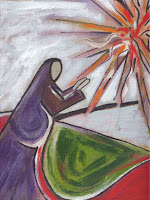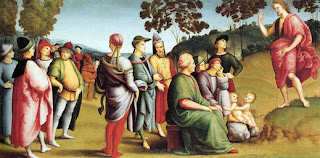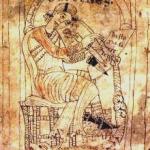Call me dangerously distracted, but not until I saw this lovely acrylic painting by Roger Hutchison, a parishioner at Trinity Episcopal Church in Columbia, South Carolina, did I realize why the Saint Andrew’s Christmas Novena also is a novena for couples trying to conceive. How obvious this now all seems.
Mary, a poor unwed teenager, spent the weeks before Christmas Day anticipating the birth of her son, a son conceived “by the Holy Ghost and born of the Virgin Mary.”
As someone who struggled with infertility during her childbearing years, I can say the Christmas season is the worst of all. Everything is centered on a couple joyously awaiting the miraculous birth of their child. Plus, Christmas comes at the end of the calendar year and can be yet another reminder of one’s empty womb.
Please share this Christmas Novena with others. As we pray it, let’s keep in mind the couples who are longing to build their families. The Apostolate of Hannah’s Tears is a wonderful resource for Catholics struggling with infertility. Does your parish offer seasonal celebrations for all its members – for singles and childless couples – or only for families with children? What do we do in our parish to encourage families to consider foster parenting and adoption? What can we do to welcome all this Advent Season?































